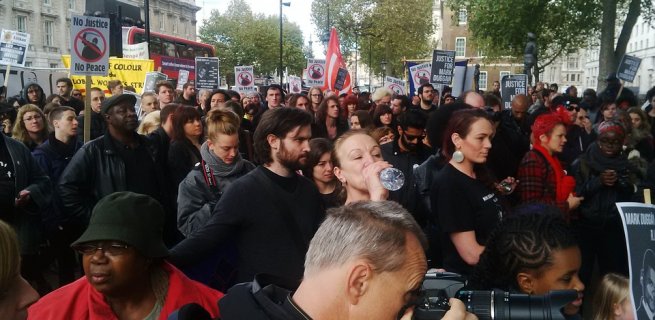By Andrew Knezevic
The ability to peacefully protest is a democratic freedom that has been enjoyed by Australians for many decades, historically protected by the common law.
However, an announcement last month by NSW Premier Mike Baird means the right to protest is severely under threat.
Civil libertarian groups are especially concerned about the ability to protest against mining and coal seam gas operations, with the Inclosed Lands, Crimes and Law Enforcement Legislation Amendment (Interference) Act 2016 receiving official assent on March 22.
On the back of this new legislation, the Premier has promised to crack down on ‘civil disobedience’ and severely punish those who unlawfully enter mining sites.
Many see the Premier’s comments as yet another example of government favouring state control and big business over democratic freedoms.
The new legislation increases fines for coal seam gas and mining protesters tenfold, while removing various individual protections and giving police the power to ‘move on’ or arrest essentially who they wish.
The Law
The new legislation amends the existing Inclosed Lands Protection Act 1901, the Crimes Act 1900 and the Law Enforcement (Powers and Responsibilities) Act 2002.
The key areas of change relate to police powers and individual rights when it comes to mining and other business activities.
Changes to ‘Enter Inclosed Lands’
The reforms create a new offence for ‘aggravated unlawful entry on inclosed lands,’ which will see fines skyrocket from $550 to a maximum of $5,500.
Section 4B also makes it an offence to interfere with the conduct of a business or undertaking, or create a serious risk to safety.
Additional Police Powers
An amendment to the Law Enforcement (Powers and Responsibilities) Act 2002 (‘the LEPRA’) gives police additional search and seizure powers, ostensibly “to deal with people who intend to ‘lock-on’ to equipment or structures for the purpose of interfering with a business or undertaking….”
And amendments to section 200 of the LEPRA remove limitations on police powers, which currently prohibit police from giving directions relating in respect of:
(a) an industrial dispute, or
(b) an apparently genuine demonstration or protest, or
(c) a procession, or
(d) an organised assembly.
In practical terms, the changes would allow police to arrest anyone they claim is in possession of an item which they believe may create a serious risk to the safety of any person, or to issue ‘move on’ directions to prevent obstructions of persons or traffic for a demonstration, protest, procession or organised assembly.
Concerns
Many believe the new laws will be used by police to ‘move on’ or arrest protesters at will, effectively removing the ability to protest against activities that individuals are legitimately concerned about.
The Law Society of NSW says the legislation “appears to encroach upon and limit fundamental rights to assemble and protest” and “would represent an erosion of long-standing democratic institutions and individual rights.”
The forthcoming changes take away “an important check on police power to ensure some balance and as an acknowledgment of the high public interest in allowing concerned or interested citizens to participate in peaceful assembly, processions and genuine demonstrations and protests”.
The brazen changes have infuriated many who are concerned with their democratic right to peacefully protest, and there are fears that many will be sent to court for simply expressing their views.











